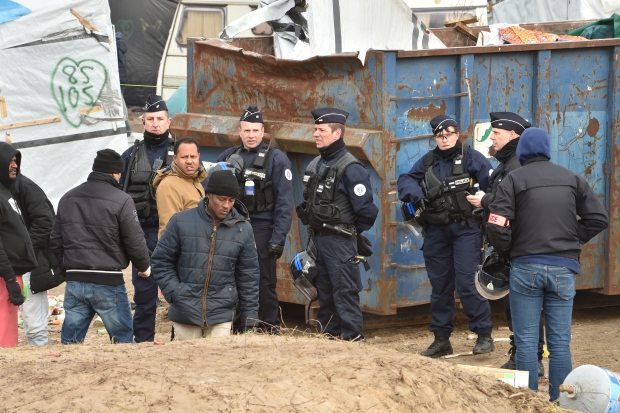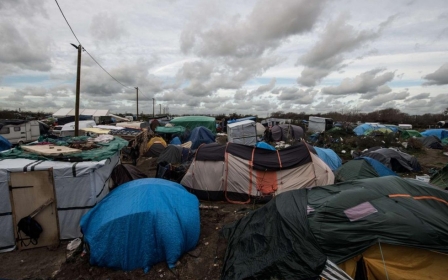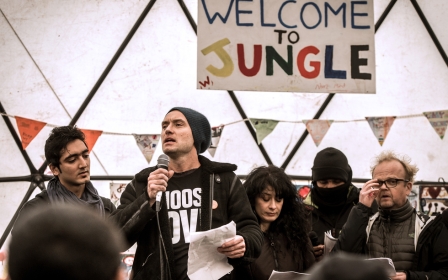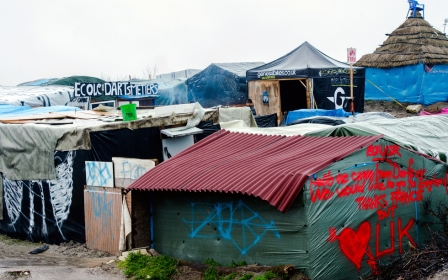Clashes break out as French police begin demolition of Calais 'Jungle'
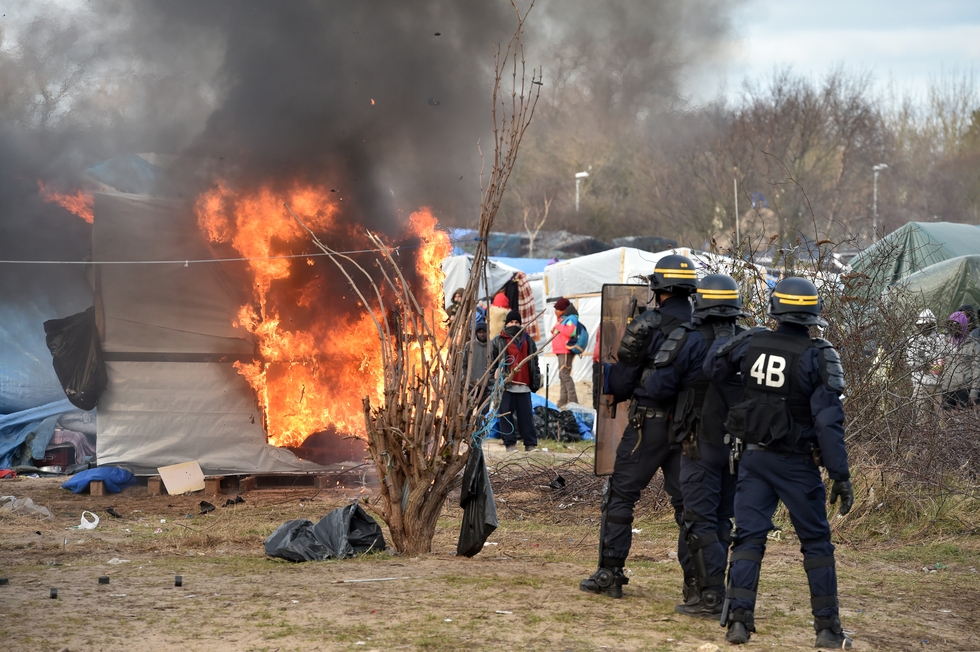
Clashes broke out between French riot police and refugees on Monday as bulldozers moved into the grim shantytown on the edge of Calais known as the "Jungle" to start destroying hundreds of makeshift shelters.
Police lobbed tear gas cannisters at refugees who protested as two bulldozers and around 20 workers moved in to start pulling down the shacks, some of which were set ablaze.
At least one migrant and one member of the British "No Borders" activist group were arrested as dozens of riot police were deployed to deal with protesters.
The demolition of the southern half of the camp, which is currently home to about 4,000 people, began after a court petition by charities to stop it was rejected last week.
"We didn't think that it would happen with so many police. It's infinitely sad to see the waste of so much work that we've done in the past months," said Maya Konforti of the Auberge des Migrants charity.
As police began evacuations, some inhabitants reportedly set fire to their dwellings:
Mitch Mitchell, an activist in the Calais camp, said demolitions were still under way on Monday afternoon.
"At the moment they're shifting stuff - what's pissed us off really is that it costs donors quite a lot of money to build these places and they're just in skips now, in pieces," he told Middle East Eye.
"[The police have] all got tear gas cannisters on their belts - the cops are walking around like Robocop ... they're the most unpleasant police force I've ever come across."
The situation was mostly calm, although one member of the British "No Borders" activist group was arrested.
The move was a shock for volunteers and aid workers who have spent months trying to improve conditions in the grim camp, built on a former toxic waste dump on the outskirts of Calais.
"We didn't think that it would happen with so many police. It's infinitely sad to see the waste of so much work that we've done in the past months," said Maya Konforti of the Auberge des Migrants charity.
"These people want to reach Britain and won't leave. They will end up in even more hardship, particularly in winter," she said.
According to the Good Chance theatre group, which works in the camp, police were “blocking entry” to activists.
"No volunteers access," it said in a tweet. "People removed from houses. Police blocking entry. This is what they call a 'soft demolition'."
However, the Calais Solidarity group said that people were still resisting the evacuation.
“Police fenced off areas in South part of #CalaisJungle, near Chemin des Dunes,” the group said on Twitter.
“People are sitting on the roofs of their houses to resist.”
Mitchell said that one man had said he would "rather die" than be evicted from the camp and that police were currently preventing anyone who left the police cordon from re-entering.
"Some of [the camp inhabitants] are very angry, but they're holding back, they've been very restrained under the provocation of losing their homes," he said.
"Some are extremely angry, some are just frightened and some are very confused."
A French court ruled on Thursday that the living spaces could be destroyed but not common spaces like mosques, schools and a library.
Le Monde reported Judge Valerie Quemener as saying the eviction was "carefully arranged and meets a real need”.
The current Calais Jungle has existed in the port town since around 2009 and has long housed refugees and migrants from Syria, Iran, Afghanistan, Eritrea, Somalia and elsewhere.
But mounting frustration among the local French populace and the national rise of the far-right National Front has increased pressure for the camp to be dismantled.
The evacuees from the camp have been given a number of options by the French authorities - move into heated container accommodation in the north of the camp, move to similar accommodation elsewhere in the country or claim asylum.
Many residents of the camp have been unwilling to claim asylum, preferring to travel on to the UK either due to having family members there or because of its perceived better job prospects and better social tolerance than France.
Middle East Eye propose une couverture et une analyse indépendantes et incomparables du Moyen-Orient, de l’Afrique du Nord et d’autres régions du monde. Pour en savoir plus sur la reprise de ce contenu et les frais qui s’appliquent, veuillez remplir ce formulaire [en anglais]. Pour en savoir plus sur MEE, cliquez ici [en anglais].


